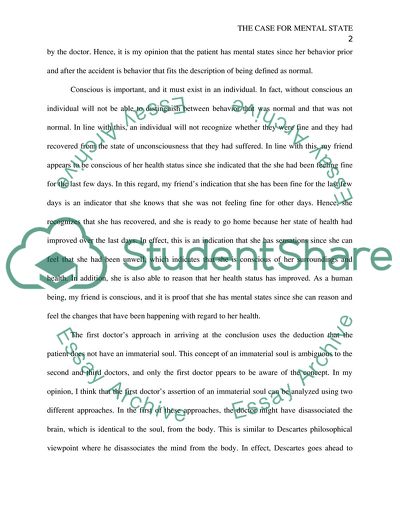Cite this document
(“The Case for Mental State in Relation to the Normal Organic Brain and Essay”, n.d.)
The Case for Mental State in Relation to the Normal Organic Brain and Essay. Retrieved from https://studentshare.org/psychology/1608718-u-name-it
The Case for Mental State in Relation to the Normal Organic Brain and Essay. Retrieved from https://studentshare.org/psychology/1608718-u-name-it
(The Case for Mental State in Relation to the Normal Organic Brain and Essay)
The Case for Mental State in Relation to the Normal Organic Brain and Essay. https://studentshare.org/psychology/1608718-u-name-it.
The Case for Mental State in Relation to the Normal Organic Brain and Essay. https://studentshare.org/psychology/1608718-u-name-it.
“The Case for Mental State in Relation to the Normal Organic Brain and Essay”, n.d. https://studentshare.org/psychology/1608718-u-name-it.


